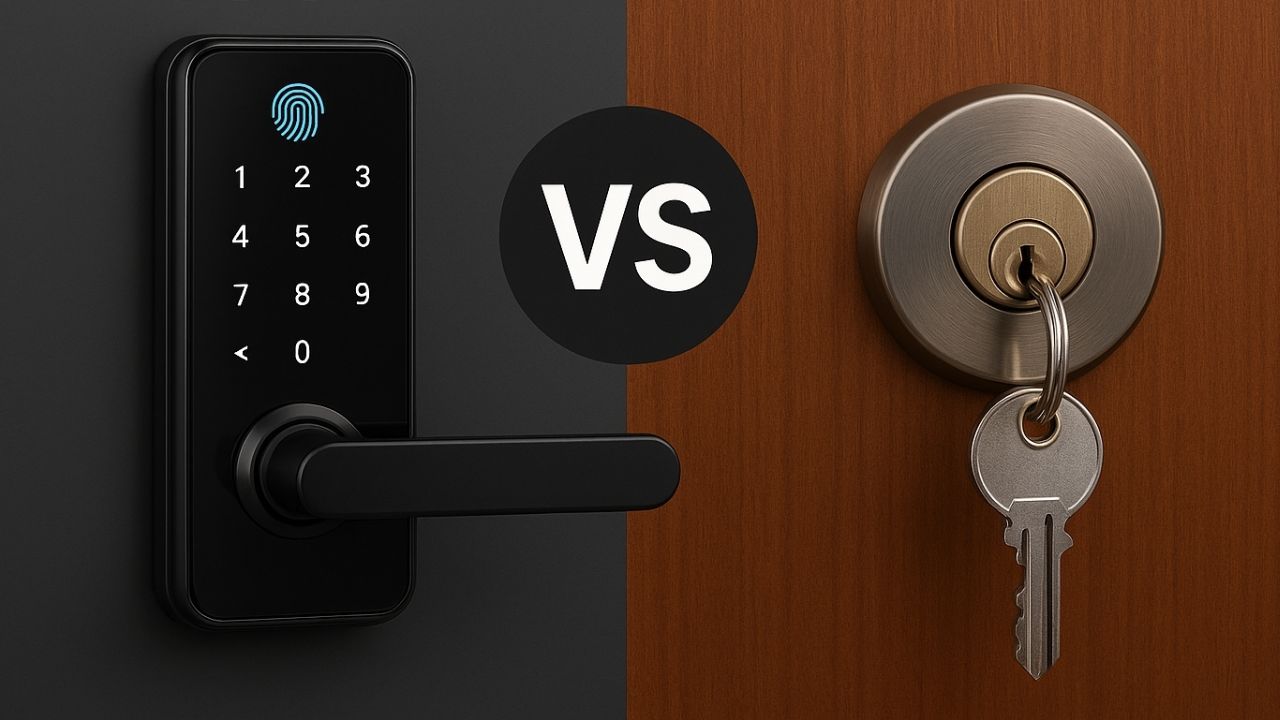Caesar is a hard-working individual who excels in business. He has been working in the same company for many years and has climbed the ranks to become one of the top employees. Caesar is dedicated to his work and takes great pride in providing value to his team and customers. He is an excellent problem solver and always looks for ways to improve efficiency and productivity. When he's not working, Howard enjoys spending time with his family and friends. He loves being active outdoors, playing sports, and exploring new places.

Home security has evolved well into the days of the simple metal key, in an era where technology is still redefining the way we live our day-to-day lives. The process of transforming the traditional mechanical locks into biometric smart locks is a significant change in the way individuals’ security methods are. Tenon, a fingerprint smart lock manufacturer with a global presence, is one of the pioneers of smart locks. This article examines the major differences between fingerprint smart locks and traditional locks, and how the innovation of Tenon is influenced by the future of smart security.
How Traditional Locks Work
Home security has been based on traditional locks since time immemorial. These mechanical devices are usually based on keys, pins, and tumblers to provide access protection. They are simple in design, although their effectiveness lies in the physical possession of the key as well as the ability of the lock to resist tampering. However, conventional locks have, over the years, been proven to be both inconvenient and insecure. Their vulnerability in the contemporary world has increased because of lost keys, tarnished mechanisms, and vulnerability to lock picking or duplication.
These disadvantages notwithstanding, traditional locks do have their role to play in some applications where the cost and simplicity are of much importance. Nevertheless, with the shift in lifestyle requirements and the increased availability of technology, mechanical locks are steadily losing their popularity.
The Rise of Fingerprint Smart Locks
Fingerprint smart locks are the future of door security, which incorporates biometric identification and digital intelligence. These locks do not require a physical key, but require the individual fingerprint patterns of authorized users to access. This is a way of making it more secure, but it is also a way of providing unmatched convenience. Users can open their doors in a matter of seconds without searching their pockets to find keys or remembering their codes.
One such company in this sector is Tenon, which has mastered the art of integrating high-tech biometric technology into its smart locks. The fingerprint locks at the company have high-resolution sensors that are able to detect minute details of the fingerprints, thus guaranteeing accuracy and speed. The recognition algorithms of Tenon are such that the false acceptance is avoided and the identification accuracy is almost perfect even under different weather conditions or lighting.
Tradition vs. Technology
Security is the most important variable when comparing fingerprint smart locks with traditional locks. Mechanical locks are time-tested but can easily be broken by lock picking, bumping, or duplicating keys. Fingerprint smart locks, on the contrary, provide a more effective line of protection. It is because every fingerprint is unique, and the chances of unauthorized access are greatly minimized.
Tenon goes the extra mile to ensure that this security benefit comes with multi-layer security mechanisms. Most of the models by Tenon are integrating the fingerprint recognition with the backup feature, like PIN codes, NFC, encrypted cards, and mechanical keys, in case of emergency. This hybrid system will also make sure that security is not compromised even in the event of power failure or network failures.
User Experience and Convenience
Fingerprint smart locks have one of the greatest benefits in the form of user experience. The designs of Tenon are designed with ease of access and control. In the traditional locks, users have to carry keys, stand the risk of misplacing them, or have problems in cases of emergencies. These problems are completely eradicated by fingerprint smart locks. They hold several fingerprints, and family members or employees can access them just by touching.
Smart connectivity is also a part of Tenon, which allows one to control locks using mobile applications. Homeowners are able to see the records of entries, control the access permissions, and unlock doors for visitors remotely, using their smartphones. Conventional locking systems cannot carry out such functions, which is a definite step in the convenience and functionality.
The Aesthetic and Technological Advantage
Fingerprint smart locks also improve the aesthetic value of contemporary houses, in addition to their security and practicality. The locks produced by Tenon have smooth, modern designs made up of high-quality materials that match any form of architecture. Compared to traditional locks, these locks are simple and functional, and do not have much to do with design innovation.
The introduction of facial recognition, palm vein detection, and the option of encrypted access to the Tenon advanced models goes to show how technology and art can be used together. The designs are such that it is not just another ordinary door, but a smart gateway that is both stylish and innovative.
Conclusion
The analogy of fingerprint smart locks and standard locks highlights a definite shift in the current security system. Although conventional locks are designed to perform simple functions, they cannot be compared to the intelligence, accuracy, and convenience of the biometric smart locks. Leading in this revolution is Tenon, which has reinvented both home and business security with advanced fingerprint recognition and excellent engineering.
